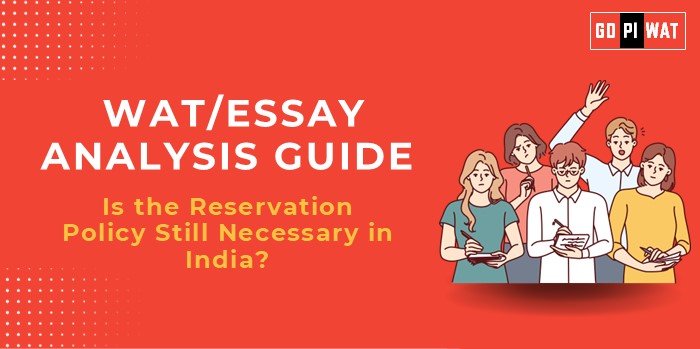📜 Is the Reservation Policy Still Necessary in India?
🌟 Understanding the Reservation Policy’s Importance
India’s reservation policy, introduced in 1950, aims to address historical injustices faced by marginalized communities like Scheduled Castes (SC), Scheduled Tribes (ST), and Other Backward Classes (OBC). While it has been instrumental in promoting inclusion, its continued relevance in a changing socio-economic landscape remains a topic of debate.
📈 Achievements
- 🎓 Educational Access: Reservation has significantly increased SC/ST representation in universities, with SC enrollment rising from 11.3% in 2014 to 14.2% in 2020 (AISHE).
- ⚒️ Employment Opportunities: Representation in government jobs has improved, providing socio-economic mobility for many marginalized families.
- 🏛️ Social Empowerment: Reservation policies have played a role in raising awareness about caste-based inequalities, fostering dialogue and reforms.
⚠️ Challenges and Comparative Analysis
- 🧑⚖️ Creamy Layer Issue: Well-off individuals within reserved categories often benefit disproportionately, leaving truly underprivileged sections underserved.
- 📉 Meritocracy Concerns: Critics argue that reservation policies can dilute merit-based selection, especially in competitive sectors like higher education and professional fields.
- 🌍 Global Comparisons: Unlike India’s fixed quota system, the U.S. affirmative action emphasizes diversity without strict quotas, offering a different model for inclusion.
🔮 Future Outlook
- 📊 Revisiting Criteria: Incorporate economic factors alongside caste-based criteria to ensure the benefits reach the neediest individuals.
- 📜 Policy Reviews: Conduct regular assessments of the policy’s impact to adapt to evolving socio-economic dynamics.
- 🤝 Community Engagement: Foster grassroots-level programs to complement reservation efforts and bridge social gaps.
📄 Conclusion
The reservation policy has been instrumental in addressing historical injustices and promoting social equity. However, its framework must evolve to remain effective. By incorporating economic criteria, refining eligibility measures, and periodically reviewing its implementation, India can ensure the policy continues to uplift marginalized communities while promoting merit and inclusivity in its modern, diverse society.
📄 Source: Written Ability Test (WAT) Analysis Guide, 2024


